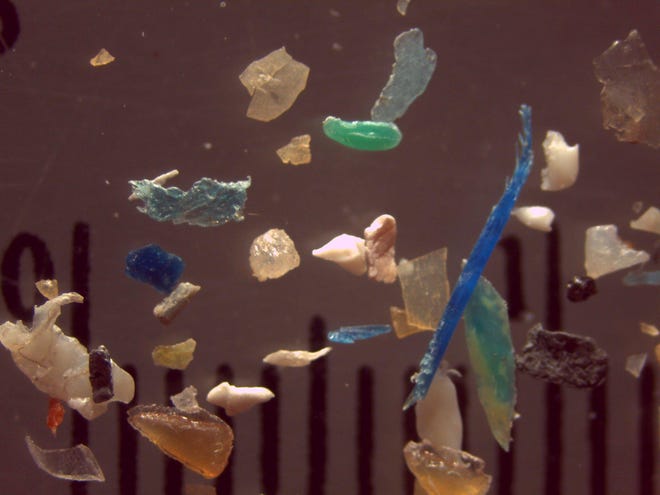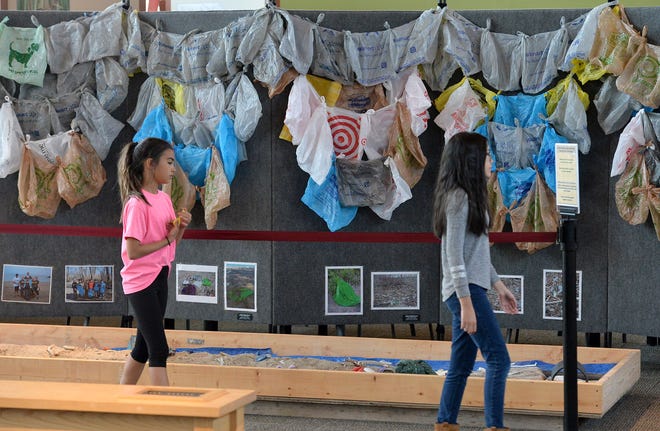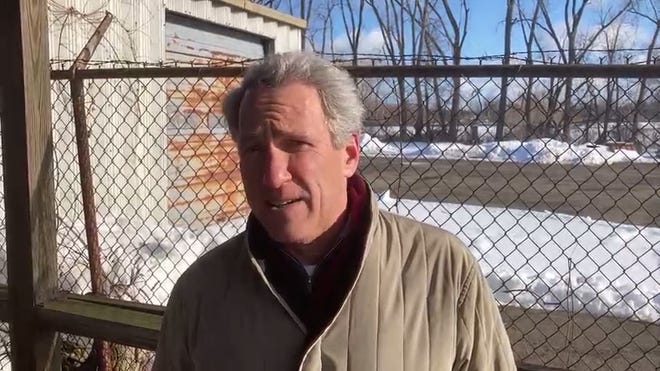International Recycling Group (IRG) plans to build a plant for processing waste plastic on a 25-acre “Opportunity Zone” site between East 10th Street and East Lake Road. The site was owned by International Paper (IP). The plant will have a sorting facility that IRG calls “recycling” waste plastic products.
Lake Erie Group, Pennsylvania Sierra Club Chapter, opposes building the plant.
The Lake Erie Group, Pennsylvania Sierra Club Chapter, has about 800 members in northwestern Pennsylvania. Many live in the neighborhood of the IP site or on the east side of the city of Erie.
Breaking the mold:An in-depth look at how Erie-based IRG wants to change plastic recycling’s future

Lake Erie Group’s position: The benefits that IRG claims would accrue to the community and the environment if its plant were built, even if accurate, are heavily outweighed by the foreseeable long-term human health costs and environmental damage of operating the proposed plant. Therefore, Lake Erie Group, Pennsylvania Sierra Club Chapter, opposes building the plant.
The Sierra Club’s position on the continued extraction of fossil fuels is clear. Plastics are produced from feedstocks refined from the production of oil and gas: “There are no ‘clean’ fossil fuels. The Sierra Club is committed to eliminating the use of fossil fuels, including coal, natural gas and oil, as soon as possible. We must replace all fossil fuels with clean renewable energy, efficiency and conservation.”
The Sierra Club also has clear positions on 1) the build-out of the plastics industry in western Pennsylvania; 2) on the banning of single-use plastics (and corporate efforts to undermine the public’s right to do so — unfortunately successful in Pennsylvania); and 3) the virtually complete failure of the plastics recycling industry.
Basically, plastics recycling does not exist in any meaningful form. The very limited amount of plastics actually being processed for “recycling” are in fact being downcycled— re-processing plastic degrades the material and limits the number of times it can be re-processed. The ultimate fate of all the plastics introduced into the environment every day are, in order of prevalence:
1) Pollution, most evident in waterways, but equally present on land, and even in the air, and in virtually all our bodies.
2) Landfill.
3) Burning, primarily for energy production (but also including coke substitution), spewing climate-changing carbon pollution into our waters and atmosphere, notwithstanding even modern emission control technology.
4) A tiny portion of the vast volumes of plastics produced every day are downcycled into other plastics, which cannot be recycled again, meaning that they ultimately end up as either pollution (directly and through burning) or in landfills. Fossil-fuel-based plastics are simply not sustainable materials.

The International Recycling Group (IRG) is proposing to truck 250,000 tons of plastic garbage into Erie annually. The materials would be sorted and then transported off-site to be used as fuel. No recycling is involved. Based on the well-considered positions of the Sierra Club nationally and in Pennsylvania, the Lake Erie Group cannot support the IRG proposal.
Furthermore, any thorough consideration of the IRG proposal, as outlined in public statements, on its website, local media and social media, raises dozens of unanswered questions, and leads a reasonable person to wonder how such an enterprise can possibly succeed, let alone accomplish anything positive in the way of addressing the enormous issue of plastic pollution. A list of these questions appears in the Erie Reader: https://bit.ly/3yN1VgW.
An article published on GoErie.com, https://bit.ly/3wGeKrE, refers to the questionnaire, but neglects to try to get answers to the questions, instead providing Mitch Hecht, IRG CEO, with another opportunity to greenwash his proposal, describing himself as a “dedicated environmentalist.”
Timeline:A history of International Recycling Group included challenges, setbacks en route to Erie
The Sierra Club Lake Erie Group understands that the plastics industry plays an important role in the economy of the Erie region. But we also understand that plastic pollution has already achieved a level frequently described as environmental disaster. Plastic pollution has become a moral issue — the damage to the environment is enormous and increasing daily, and the worst of its impacts are felt most intensely by the world’s poorest populations. The continued production of single-use plastics afflicts all of us, and the fact that it is a source of economic activity is not sufficient reason to permit the ongoing infusion of plastic into the environment on every level.
Sierra Club:The U.S. recycling system is garbage

We strongly urge the plastics industry, and its support network, including Penn State Behrend and its School of Engineering, which has the largest academic plastics lab in the United States, to start to address this crisis from a moral perspective, rather than continuing to embrace a coldly technological approach to materials science, free of concerns about the crisis caused by their products. The alternative is for the plastics industry to continue to emulate the international armaments industry, which has successfully convinced many of the world’s governments that its weapons make us safe, when it is quite clear that the arms trade drives armed conflict.
We strongly urge that the city of Erie and the other municipalities in northwestern Pennsylvania take a hard look at their recycling programs and stop supporting the fiction that plastics are recyclable. A well-conceived, carefully managed recycling program is important — indeed, it is essential for a sustainable future — but a recycling program that pretends to recycle plastic and rejects recycling glass (or paper, or other immanently recyclable materials) is not fundamentally sound. “Reduce, reuse, recycle” is a hierarchy of options — recycle is the last resort, and certainly not a solution to the plague of plastics currently engulfing the planet.
To read about the Sierra Club’s zero waste policy go to: https://bit.ly/3vFW3Eg.
This position paper was submitted by the Executive Board of the Lake Erie Group, Pennsylvania Sierra Club Chapter.

